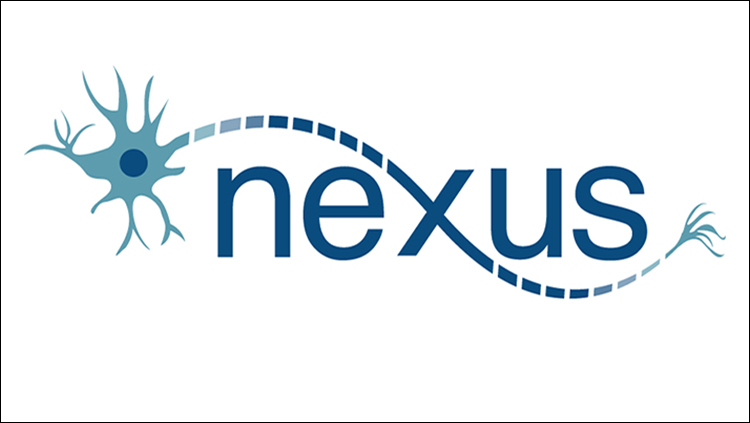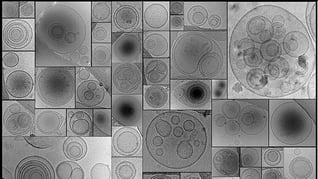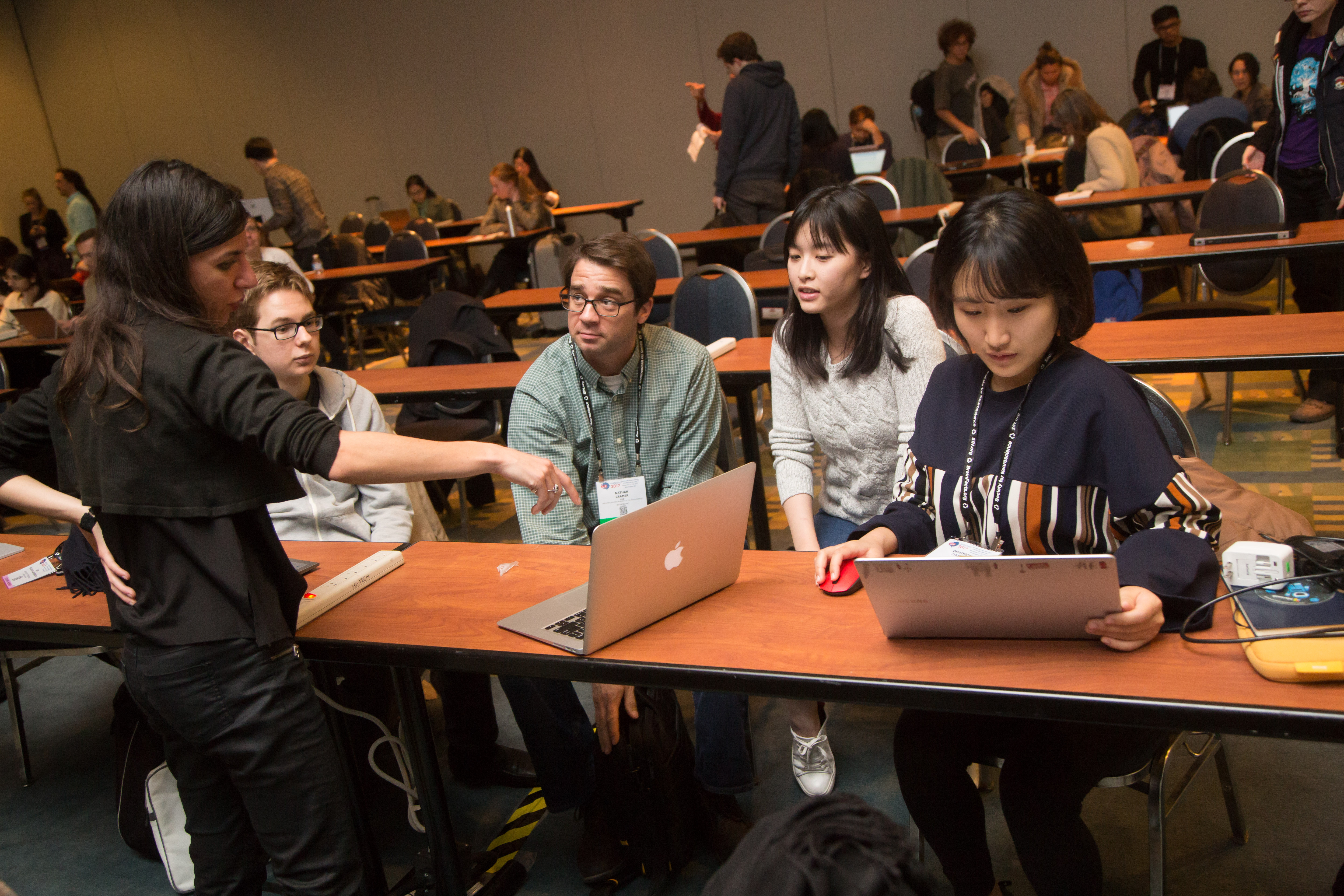- Publications
- SfN Nexus Member Newsletter

Nexus Member Newsletter
Read the latest issue of SfN's semi-monthly, all-member digital newsletter.
November 1, 2024 |

|
Renew Your Membership for 2025 Secure your year-round SfN benefits for another year: If you have not already done so, renew your membership for 2025 now — or purchase a two-year membership, keeping your benefits active through the end of 2026. |
Join Linda Richards, Paul Kenny, Dan Cox, and moderator Lique Coolen for a discussion on university faculty hiring processes, including best practices for applications, interviewing, negotiations, search committees, tenure, and promotion. This virtual event will take place Wednesday, November 13, 11 a.m. EST. Registration is complimentary for SfN members. |
Apply Now: Neuronline Community Leaders Program Become part of a vibrant SfN member community on Neuronline! Lead discussions, share resources, and explore topics like event recaps, research, and career growth. Submit your application by Friday, November 29. |
Call for Nominations to Serve the SfN Community Now Open The 2025 Call for Nominations is now open! Nominate yourself or a colleague for a volunteer leadership position with one of SfN’s committees. Committees focus on a wide variety of topics including annual meeting programming and professional development. The Call for Nominations closes Friday, February 7. |

|
#SfN24 Virtual Component Open Through November 10 Take advantage of continued access to over 2,200 virtual posters, 24 lecture recordings, and more in the Neuroscience 2024 Virtual Component. This content is available through Sunday, November 10. Log in using your last name and registration number (badge ID). |
Connect with 2024 Annual Meeting Exhibitors Follow up with the exhibitors you connected with — or missed — at Neuroscience 2024: Explore the virtual Exhibitor Directory to discover hundreds of neuroscience-related products and services. |
See You Next Year in San Diego Start planning now! The Call for Proposals for Neuroscience 2025 sessions and events opens early next month and closes Wednesday, January 22. Abstract submission is May 21–June 4. |
2025 Program Support, Sponsorship, and Advertising Opportunities Show the neuroscience community how your organization, products, and services can advance their research. If you are interested in program support, sponsorship, or advertising opportunities for Neuroscience 2025, contact development@sfn.org. |

|
Check Out More Research Findings from Neuroscience 2024 These new findings provide insights into sleep and Alzheimer's, blood pressure and cognitive decline, and inflammation and neurodevelopment. |
Presence Hallucination Research Shows How Our Brains Conjure Ghostly Illusions People with Parkinson’s disease, or those under extreme physical or emotional distress, can sometimes hallucinate nonexistent presences. |
Extracellular Vesicles Facilitate Communication Between Cells This October JNeurosci cover image provides a lens into the cellular machinery sending messages to perform tasks in the mouse brain. |

|
Renew Your Institutional Program’s SfN Membership for 1 or 2 Years Make sure your neuroscience training program secures access to key benefits for 2025, including discounted exhibit fees for the #SfN25 Graduate School Fair (more information coming soon), a complimentary email to SfN’s student members, 25% off NeuroJobs Career Center (NJCC) employer packages, and a listing in the Institutional Program Directory. Join or renew today. |
The new season of the Meet-the-Expert webinar series kicks off Wednesday, November 20, 1 p.m. EST, with Finding Balance Outside the Box: Neuromechanics of Skilled and Impaired Movements, a discussion with Lena H. Ting. Registration is complimentary for SfN members. |
Meet the Expert: Robert C. Froemke On Wednesday, December 4, 1 p.m. EST, join Robert C. Froemke for Love, Death, and Oxytocin, a webinar on synaptic plasticity and mouse family life. Registration is complimentary for SfN members. |

|
Celebrate GivingTuesday With SfN Mark your calendar! Global GivingTuesday is December 3. Give back to the neuroscience community by donating to the Friends of SfN Fund, helping to grow training, education, and outreach programs critical to advancing the field — including BrainFacts and Trainee Professional Development Awards (TPDA). |

|
Urge Congress to Support Neuroscience Research Send your Senators and Representatives a message highlighting research advances presented at Neuroscience 2024 and urging them to provide robust funding for biomedical research in FY 25. |
Meet the 2024 Early Career Policy Ambassador, Katherine Gonzalez, on Neuronline Learn about Early Career Policy Ambassador (ECPA) Katherine Gonzalez’s research and advocacy projects. Explore the entire Meet the ECPA collection on Neuronline, SfN’s home for learning and discussion. |

|
Mistakes in Thinking about Cognitive Science and How to Reduce Them “Mistakes in scientific thinking tend to be subtle—scientists would hardly make them if they weren't.” In a new eNeuro collection Improving your Neuroscience, Johnson-Laird’s commentary aims to show that cognitive scientists sometimes make mistakes in thinking and describe a method to help improve accuracy and speed of reasoning. |
On the eNeuro blog, co-first authors Paulo Ávila-Gómez, Yuto Shingai, and Sabyasachi Dash discuss what made their collaboration successful and provide thoughtful advice for early career researchers. |
Welcome to the Editorial Board JNeurosci welcomes William Stacey as a new Reviewing Editor. |

|
Nominations Open for the 2025 Gruber Neuroscience Prize The Gruber Neuroscience Prize awards individuals whose discoveries have led to fundamental shifts in knowledge and culture. Recognize the work of a colleague, mentor, or rising star with a nomination by Sunday, December 15. |
Apply Now: Alan Kanzer Postdoctoral Fellowship Applications are open for Columbia University's Alan Kanzer Fellowship, which supports early career scientists with annual funding and collaborative opportunities in brain research. Apply by Monday, December 16. |
Attend the Athens International Symposium Join stem cell leaders from around the world in Athens, Greece, April 3–4, to explore the latest neural stem cell research, findings, and technologies. |
Quick Links
Copyright ©
Society for Neuroscience

























